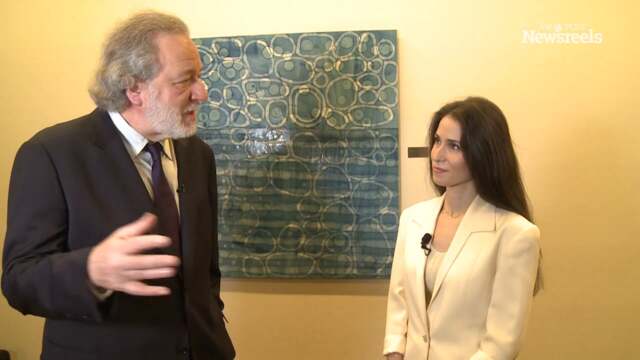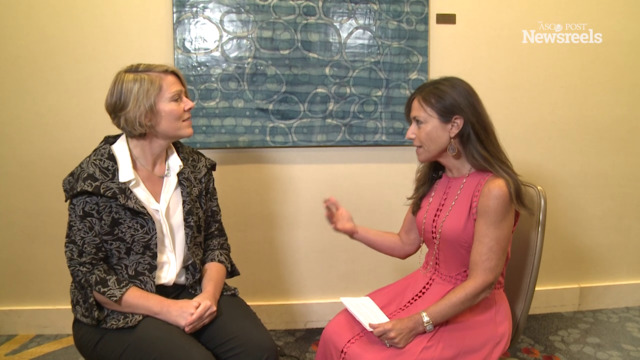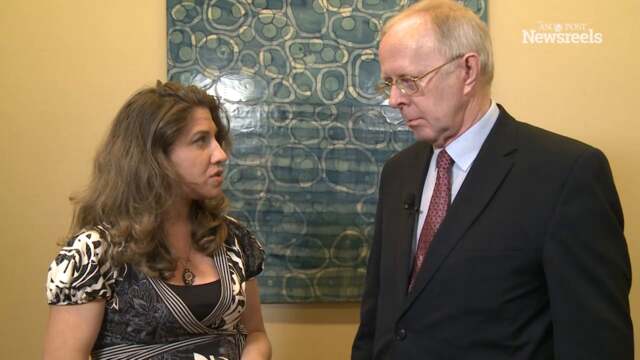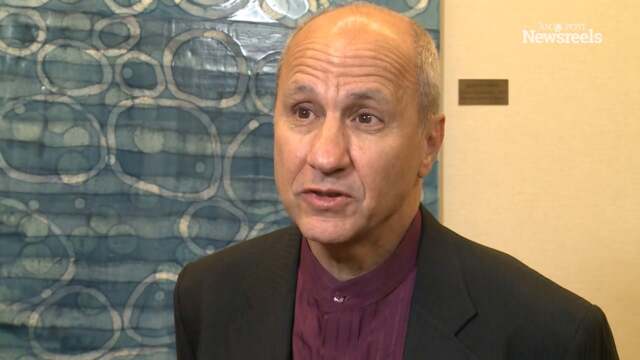Julia H. Rowland, PhD, on The Psychosocial Challenges Cancer Survivors Face
2015 IPOS APOS World Congress of Psycho-Oncology
Julia H. Rowland, PhD, of the National Cancer Institute, discusses the growing number of promising interventions to improve health and function for those living with and beyond a cancer diagnosis, as well as those who care for and about them.
Related Videos
Allison J. Applebaum, PhD, and William S. Breitbart, MD
Allison J. Applebaum, PhD, and William S. Breitbart, MD, of Memorial Sloan Kettering Cancer Center, discuss the early days of this new treatment for despair and distress in cancer patients.
Lori Wiener, PhD, DCSW, LCSW-C, and Karen Fasciano, PsyD
Lori Wiener, PhD, DCSW, LCSW-C, of the National Cancer Institute, and Karen Fasciano, PsyD, of the Dana-Farber Cancer Institute, discuss the challenges of the art and science of psycho-oncology.
Wendy Lichtenthal, PhD, and David Kissane, MD
Wendy Lichtenthal, PhD, of Memorial Sloan Kettering Cancer Center, and David Kissane, MD, of Monash University, discuss the importance of and challenges with attending to the whole family during palliative care.
Patricia A. Ganz, MD
Patricia A. Ganz, MD, of the University of California, Los Angeles, discusses the Institute of Medicine report on patient-centered care, its relation to psychosocial services, and the role IPOS/APOS members can play.
Matthew J. Loscalzo, LCSW
Matthew J. Loscalzo, LCSW, of the City of Hope, discusses the ways in which a person’s gender influences how he or she reacts to and copes with a cancer diagnosis and treatment.





